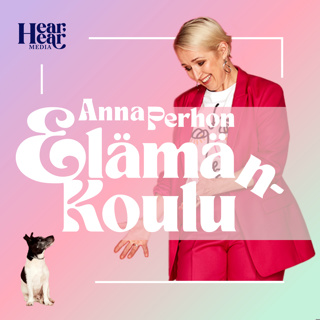
009 - Passive Voice in English
In the active voice, the subject of the sentence DOES the action: Jake wrote a letter.subject / verb / object In the passive voice, the subject of the sentence is acted upon: A letter was written (by Jake).subject / verb Notice that the object of the active sentence (letter) became the subject of the passive sentence. If we want, we can include “by Jake” to say who did the action. Today's lesson is the complete guide to the passive voice in English. You'll learn when to use the passive voice, how to form the passive voice in all English verb tenses, and more. This is a free sample lesson from the Advanced English Grammar Course. Click here for the episode text - http://www.espressoenglish.net/passive-voice-in-english/
11 Tammi 201518min

008 - Difference between TO and FOR
Don’t say: “I’m studying every day for improve my English.” Say: “I’m studying every day to improve my English.” The prepositions to and for are very easy to confuse! In today's lesson, I'll explain 6 situations in which we use the word TO, and 7 cases in which we use the word FOR. Click here for the lesson text - http://www.espressoenglish.net/difference-between-to-and-for/
11 Tammi 20157min

007 - Travel, Trip, or Journey?
A lot of English as a Second Language learners confuse the words TRAVEL, TRIP, and JOURNEY. In today's lesson, you'll learn how to use each word and avoid common mistakes. Click here for the episode text - http://www.espressoenglish.net/difference-between-travel-trip-and-journey/
11 Tammi 20156min

006 - An Easy Way to Form Questions in English
Forming questions in English can be confusing. Don’t worry – I’m going to teach you a simple formula that works for asking questions in almost ALL the verb tenses! This formula is called QUASM: QU estion wordA uxiliary verbS ubjectM ain verb In today's lesson, you'll see how QUASM works for forming questions in various verb tenses. Click here for the lesson text - http://www.espressoenglish.net/an-easy-way-to-form-almost-any-question-in-english/
11 Tammi 20159min

005 - Present Perfect vs. Past Perfect
Both present perfect and past perfect talk about something that happened before a point in time (reference point). In the present perfect, our reference point is the present. In the past perfect, our reference point is in the past. Click here for the episode text - http://www.espressoenglish.net/difference-between-present-perfect-and-past-perfect-in-english/
11 Tammi 20157min

004 - How to Improve Your Spoken English
Speaking English is difficult for many learners. In this article, I’ll give you 10 ways to speak English better: 5 ways to improve your spoken English at home, and 5 ways to improve your spoken English while in a conversation. Click here for the lesson text - http://www.espressoenglish.net/speaking-english-10-ways-to-improve/
11 Tammi 201510min

003 - Difference between SHOULD HAVE, COULD HAVE, and WOULD HAVE
Should have, could have, and would have are sometimes called “modals of lost opportunity” because they describe situations when we are imagining that the past was different. Click here for the lesson text - http://www.espressoenglish.net/past-modals-should-have-could-have-would-have/
11 Tammi 20158min

002 - Difference between SHOULD, COULD, and WOULD
The difference between should, could, and would is difficult for many English learners – this lesson will help you understand when to use each one! Use should/shouldn't for advice Use could/couldn't for ability in the past Use could for future possibilites and polite requests Use would for unreal/unlikely situations Use would you like for polite offers Listen to the episode for more details, example sentences, and common errors to avoid. Click here for the episode text - http://www.espressoenglish.net/difference-between-should-could-and-would/
11 Tammi 20157min






















